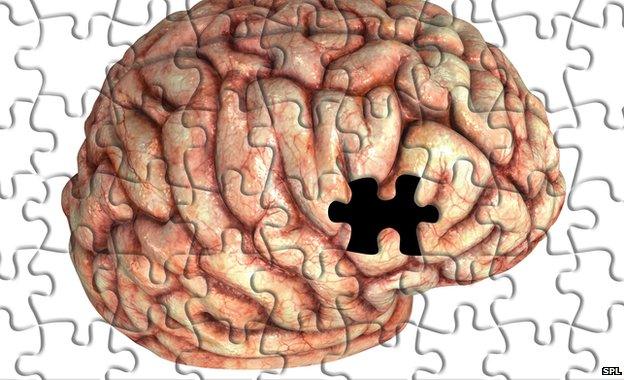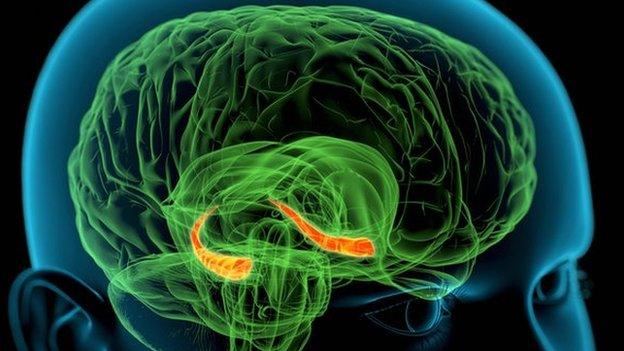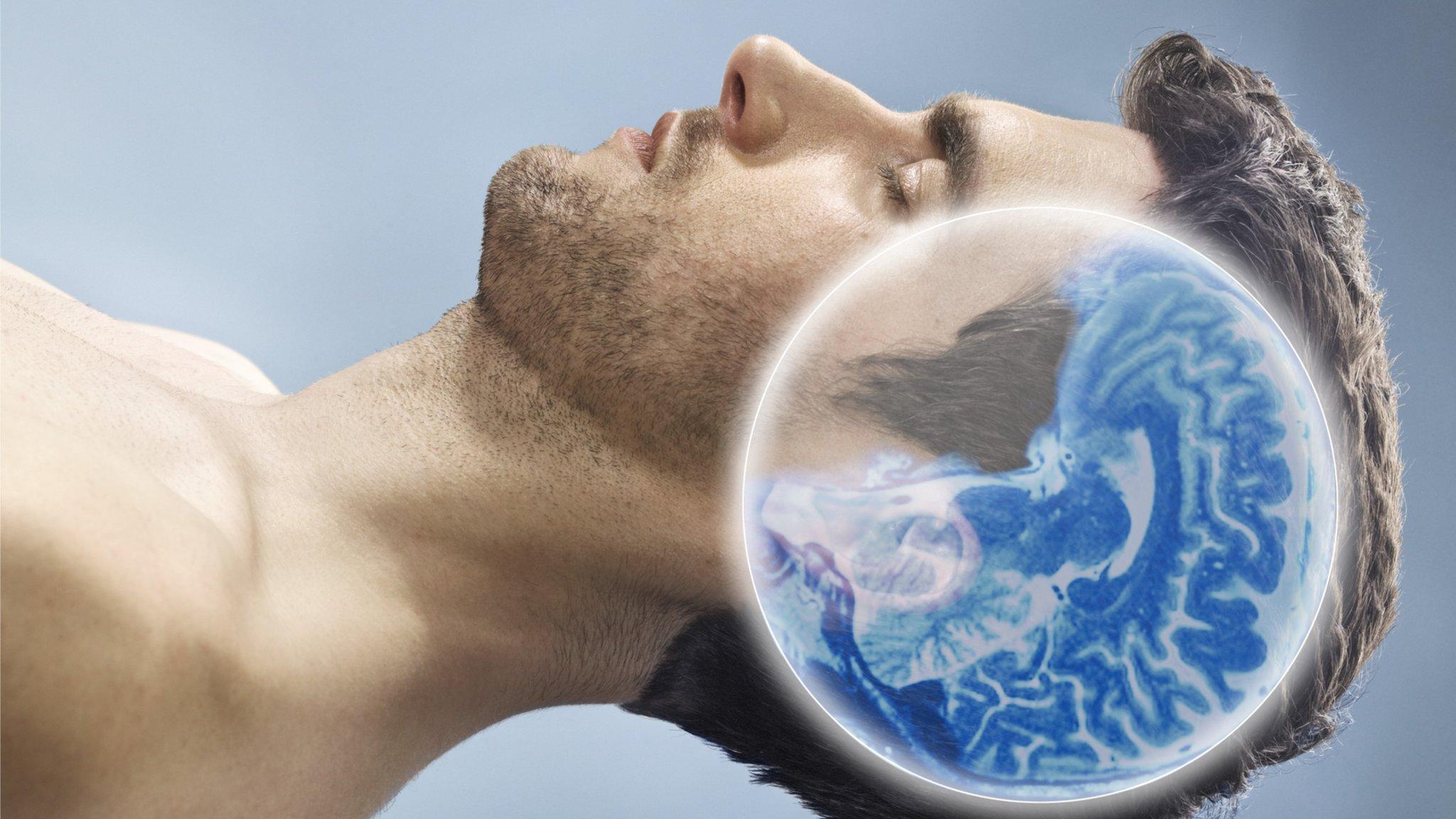Repeated remembering 'wipes similar memories'
- Published

Recalling a particular memory can cause us to forget another, similar memory - and neuroscientists have now watched this process happen using brain scans.
Inside the brains of human subjects, they pinpointed the unique imprints of two visual memories that were triggered by the same word.
Then they watched as repeatedly recalling one of the images caused the second, interfering memory to vanish.
The study is published in the journal Nature Neuroscience, external.
The results suggest that our brains actively delete memories that might distract us from the task at hand.
"People are used to thinking of forgetting as something passive," said lead author Dr Maria Wimber from the University of Birmingham.
"Our research reveals that people are more engaged than they realise in shaping what they remember of their lives."
Deleting distractions
Dr Wimber performed the study with colleagues from the MRC Cognition and Brain Sciences Unit in Cambridge.
She told the BBC the implications of the new findings were not as simple as a "one in, one out" policy for memory storage.
"It's not that we're pushing something out of our head every time we're putting something new in.
"The brain seems to think that the things we use frequently are the things that are really valuable to us. So it's trying to keep things clear - to make sure that we can access those important things really easily, and push out of the way those things that are competing or interfering."
The idea that frequently recalling something can cause us to forget closely related memories is not new; Dr Wimber explained that it had "been around since the 1990s".
But never before had scientists managed to confirm that this was the result of an active suppression of the interfering memory, rather than just a passive deterioration.
What made the discovery possible was identifying reliable indicators that her subjects were recalling a given picture, inside their visual cortex.
She did this by getting them to do a number of "boring" tasks in the brain scanner, before the memory trials even began. This might involve looking at a picture of Marilyn Monroe, or Albert Einstein, many times over.
"We show people visual pictures of these memories over and over again - and we can sample the prototypical brain response to those pictures," Dr Wimber explained.
This allowed the researchers to discover what was distinctive about the "Monroe" pattern compared to the "Einstein" one.
Then, by triggering them both with the same, unrelated word (eg "sand") but only asking for one to be remembered, they were able to watch, say, the Monroe trace persist while Einstein withered and faded.

'Adaptive forgetting' may help us to maintain clarity for the memories we keep
Dr Wimber hopes the findings could prove useful in psychology, where erasing specific memories is sometimes exactly what patients need.
"Forgetting is often viewed as a negative thing, but of course, it can be incredibly useful when trying to overcome a negative memory from our past," she said.
"So there are opportunities for this to be applied in areas to really help people."
Dr Hugo Spiers, a senior lecturer in behavioural neuroscience at University College London, told BBC News the research was exciting and elegantly done.
"This is an example of good brain imaging research," he said.
"The results go beyond simply revealing that a brain region is involved in memory: they provide insights into the mechanisms used by the brain to achieve this."
The work also impressed Dr Eva Feredoes, who studies memory mechanisms at the University of Reading. She said the finding could even prove useful for tackling memory loss in dementia.
"We know that memories compete with each other at different stages while they are being remembered and when they are retrieved, with the losers of the competition forgotten from memory," Dr Feredoes said.
"Solving this complex 'competition' could pave the way for new research into new treatments in diseases that affect memory, such as dementia. Importantly, there are now several techniques to improve brain function. Combined with these results, we have viable mechanisms and brain areas to target with these techniques."
Follow Jonathan on Twitter, external.
- Published16 January 2015

- Published20 November 2014

- Published8 July 2014

- Published6 June 2014
